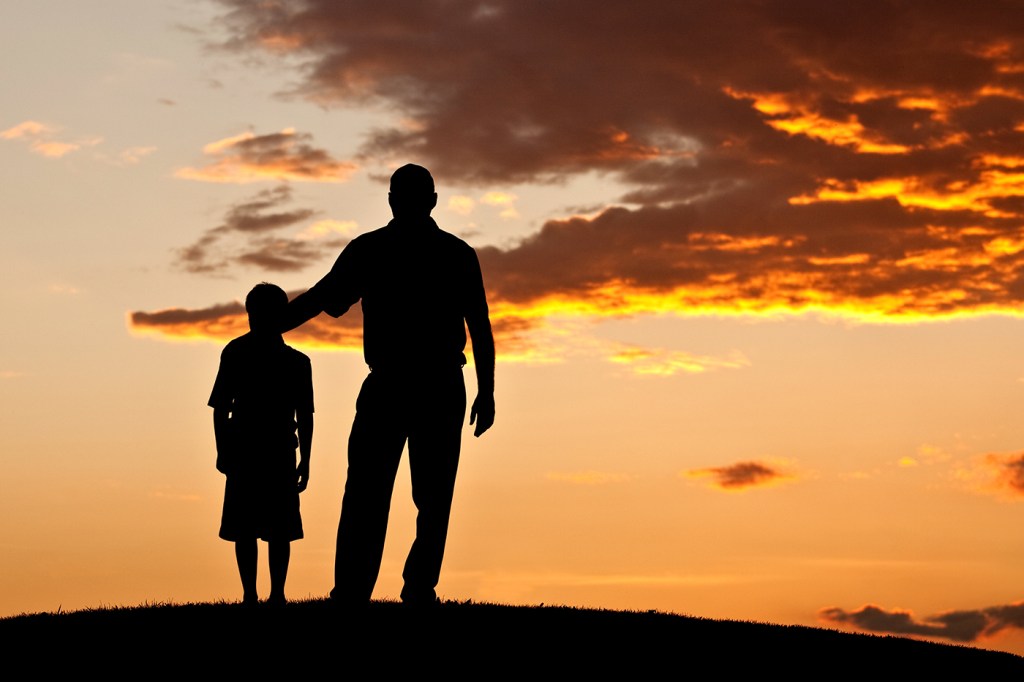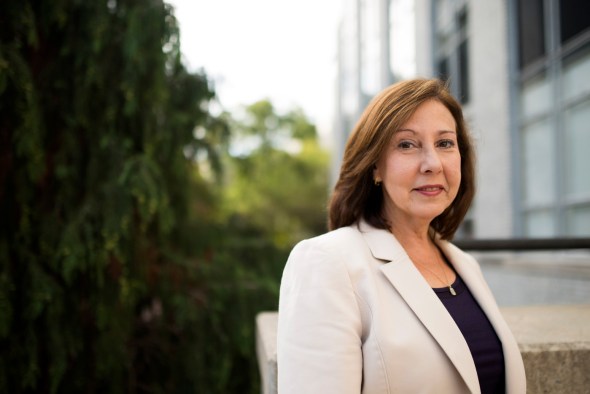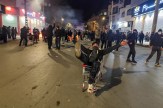How do parents talk to their children about the massacre at Robb Elementary School?

Less than two weeks after a shooting in a Buffalo, New York grocery store left 10 people dead, an 18-year-old wielding an AR-15-style rifle entered an elementary school in Uvalde, Texas and killed 19 children and two teachers.

The tragedy, which took place on Tuesday at Robb Elementary School, comes nearly 10 years after the Sandy Hook Elementary School massacre in which 26 people—including 20 children—were shot dead.
The massacre in Texas is the second deadliest school shooting in the U.S., and the 27th so far this year.
With so much grief enveloping the nation during this time, News@Northeastern sat down with Laurie Kramer, professor of applied psychology at Northeastern, to understand how—and whether—parents should talk to their children about what happened. Her comments have been edited for brevity and clarity.
First of all, what is your reaction to the events that took place at Robb Elementary School?
This is just a horrendous situation yet again. It saddens me and makes me very angry that we do have to broach these issues because it’s our children who are grappling with these issues, as well as ourselves as adults. It’s our role as parents, as teachers and as educators, to take care of our children, to protect them; and yet these senseless acts of violence are not well understood by everyone, so it makes it even more difficult to help children understand what has happened, or what they need to know about this to take action to help them feel safe.
Do we talk to children about this, and if so, how?
I do believe it’s very critical that we do have these conversations with children. If we don’t, they’re going to hear about it from peers at schools, at childcare, in their neighborhood, or in the media—and parents will have much less control and ability to help children understand in ways that they’re capable of understanding at their developmental levels and ages. It’s also important that, if parents do this, they control disinformation and misinformation as well.
I always want to take a developmental approach when we have these conversations. How we talk to a four-year-old about these issues is very different from how you talk to a 14-year-old. Their understanding of the world, of what motivates people, of their sense of safety and their sense of whom they can turn to in order to help them feel safe and somewhat in control of these situations, are going to be quite different.
I do think it’s probably most challenging with young children who may be hearing about these issues, and who may lack a good vocabulary to talk about their experiences and how they’re understanding these events. I think it’ll be important for parents to take it slow and really allow children to express themselves in whatever way makes sense, because it’s most helpful if parents can understand how their child is processing this, how they’re experiencing it, and how it’s making them feel and understand the world.
Do you have advice for parents about how to start that conversation, and can you provide an example of what that may look like?
My advice for parents is really to start the conversation very simply by stating how they themselves are personally feeling about this event. For example, you could say: “I’ve been thinking about the children who passed away; I’m thinking about their parents; I’m thinking about the other children who are at that school and witnessed this, or the other teachers.” So deploying very simple language using words that young children can understand and resonate with—words like “sadness, concern, confusion,” for example, would be very accessible for young children.
But it’s about acknowledging your own sense of sadness, or even anger; lots of people are very, very angry right now about the fact that we’re not taking sufficient action to keep these events from happening again and again. I think we want to keep it very simple so that we do not overwhelm children. We do not want to traumatize them; but we do want to spend most of our time listening, and allowing children to tell us how they’re feeling about it. With young children, maybe they can’t tell us so much with words, so it could be drawing a picture about their feelings, or finding some ways to use creative methods to express—maybe not even verbally—what’s going on for them at this moment.
And what about middle-school-aged children and high schoolers? How might that conversation differ from the conversation parents would be having with younger children?
Following the same approach of parents showing that this is an acceptable topic of conversation—that they truly want to understand what this is like for their adolescent, in this case. They can begin by acknowledging their own observations, feelings, and reactions to the event. Open up some space for the adolescent to say what’s on their mind.
For parents of adolescents, they really want to know how … their adolescent is understanding what happened, the reasons for these events, how do they manage the fact that we’ll never really understand what was in the mind of someone who perpetrated these heinous acts, and how worried are they about their personal safety. That is something the parent needs to understand better and help this person feel a little bit more in control of their own personal safety. Are they worried about going to school? Are they worried about peers? Do they know about peers who have been ruminating about doing something horrendous like this? We have to acknowledge the fact that adults don’t always know what’s going on when other young adults or adolescents are contemplating acts like this. Yet it could be our adolescents and teenagers who are more cued in due to friendships, rumors, social media … and to empower them to act, to do things that will protect themselves and others that they care about.
Helping adolescents think about ways that they can actually take agency over any of these events, I think, is really important. Even with young kids: They may want to do something to help others; it could be sending a card to a survivor or a parent who’s lost a child. We’ve seen this with the [Marjory Stoneman Douglas High School] students who survived that attack. It’s been very important for many of those young adults to take action and be advocates for gun control, or to spread educational information and facts about gun violence in the United States. For our teens, they may want to join a group and work on these issues as well.
For media inquiries, please contact media@northeastern.edu.






